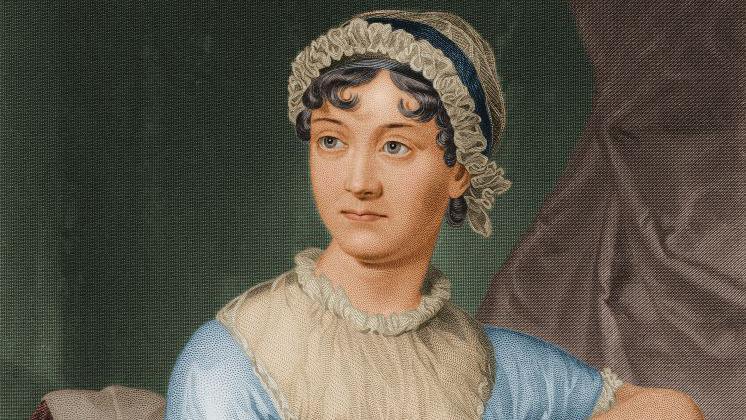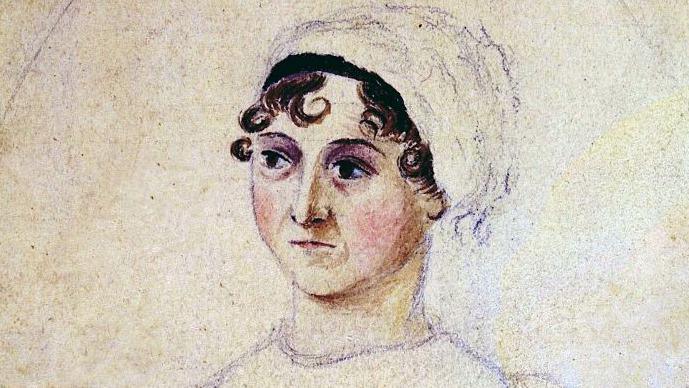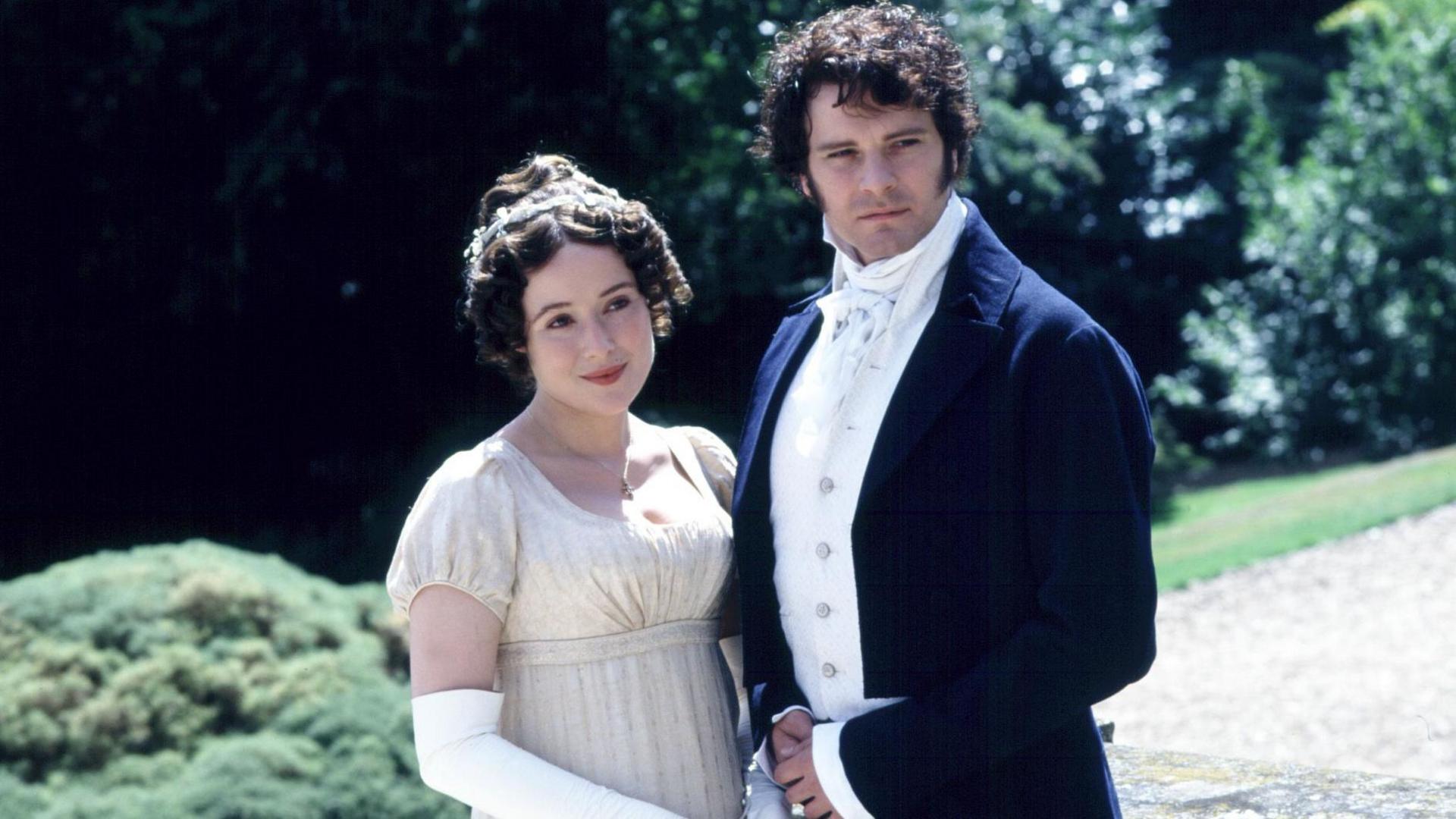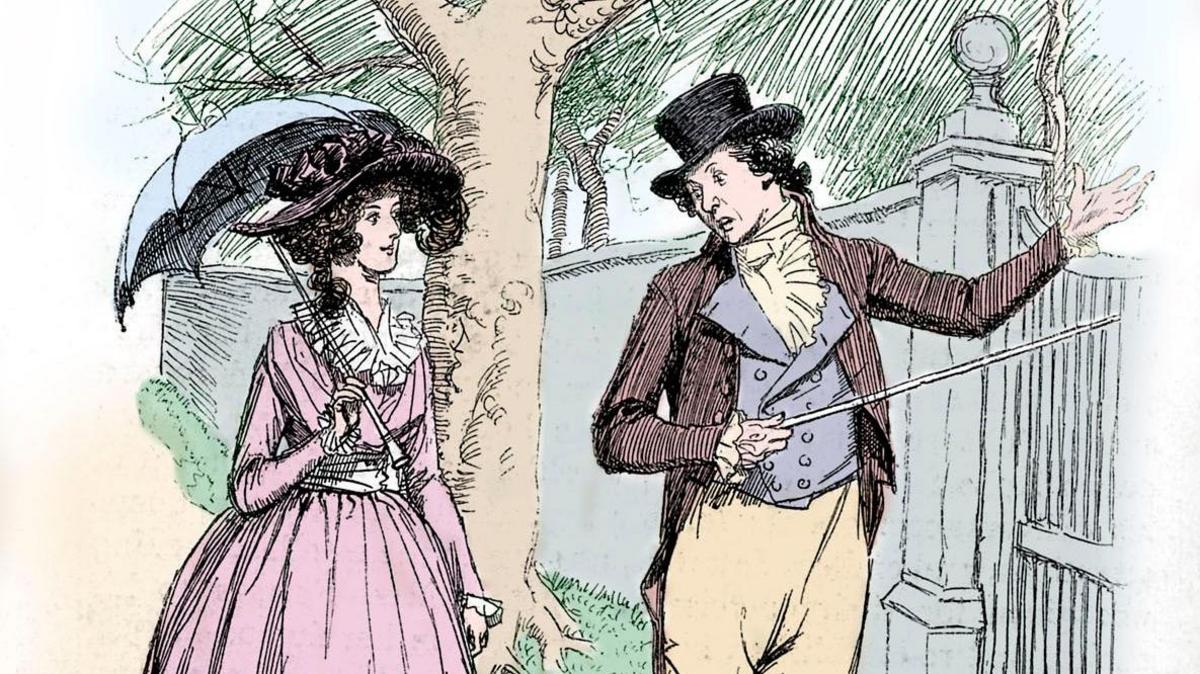Jane Austen: 250-year anniversary of British author

"I declare after all there is no enjoyment like reading!"
- Published
This year marks the 250th anniversary of the birth of famous author Jane Austen.
You might recognise her name from studying her in school, or perhaps you've clocked her face on £10 notes.
Jane Austen was famous for her books on middle class English society, and is seen as a direct influence on the modern fiction books we read today.
This is despite only publishing four books in her lifetime - Pride and Prejudice, Emma, Mansfield Park and Sense and Sensibility.
Her books have sold millions of copies all around the world and have been turned into TV shows, films and even musicals.
So to celebrate, let's take a look back at her life, and the impact her books have had on the world.
Statue of famous author Jane Austen to be built
- Published9 August 2024
Amazing women who have changed the world
- Published7 March 2023
Who is Jane Austen?

A drawing of Jane Austen by her sister Cassandra from 1810
Jane Austen was born on 16 December 1775 in the village of Steventon in Hampshire.
She was one of eight children, having six brothers and one sister.
Jane fell in love with reading and writing from a young age, often putting on plays for the family with her older sister Cassandra.
During her lifetime Jane Austen completed six novels, two of which were published after her death.
While Jane was alive, her novels were published anonymously - which means she didn't put her name down as the author and kept it secret - saying instead it was written by 'A Lady'.
After Jane's death aged 41, her sister Cassandra and brother Henry published two more of her books together - Persuasion and Northanger Abbey.
Henry also wrote a special biography about Jane to go alongside the books, where he revealed her identity as the author of all of her novels.
What books did Jane Austen write?

This picture is from the 1995 TV adaptation of Pride and Prejudice featuring actors Jennifer Ehle as Elizabeth Bennet, and Colin Firth as Mr Darcy
Sense and Sensibility (1811)
Sisters Elinor and Marianne Dashwood make a new life with their mother and younger sister after their father dies; the story follows the twists and turns of their family's fortunes. The novel sold out its first print run of 750 copies by the middle of 1813, and was a huge success.
Pride and Prejudice (1813)
Arguably Jane Austen's most famous work. It follows the story of heroine Elizabeth Bennet and her four sisters, who all have to manage the expectations of marriage and romance placed on them by society.
Mansfield Park (1814)
Fanny Price, a young girl, is sent away from her home in Portsmouth to live with her wealthy aunt and uncle's house in Mansfield Park, where she uncovers secrets and love.
Emma (1815)
Emma Woodhouse, a young, wealthy woman ends up meddling in the relationships of people in the fictional country village of Highbury with mixed success.

Emma was turned into a movie in 2020, with actress Anya Taylor-Joy (right) playing the main character Emma
Jane's fifth and sixth novels were published by her brother and sister after her death in 1817.
Northanger Abbey follows Catherine Morland whose love of spooky gothic novels, and strong imagination get her into a bit of trouble as she tries to navigate society.
Persuasion tells the story of Anne Elliot who gets a second chance at love, after being encouraged to turn down an engagement by her family and friends.
What are some of the themes of Jane Austen's books?

A drawing of Elinor and John from Sense and Sensibility by Hugh Thomson
Jane's novels centred on a few main themes - love, family, wealth and social expectations.
In her novels she regularly poked fun at how people expected women to behave at the time.
Her books are usually focused on one or two heroines who use their wit and intelligence to overcome challenges thrown their way.
During the time Jane was alive, it was quite rare for women to be published authors, as women did not have very many rights.
One of the only ways a woman could secure her future at the time was by marrying someone who was wealthy or powerful.
Women could not vote until 1918, or even have control over their own money until 1870.
Jane herself never married - but she was very close to her family, including her sister, her brothers and her many nieces and nephews.
Jane's legacy - why do people still remember her books today?

Jane Austen is featured on the UK £10 notes
Jane Austen is celebrated today for her work as an author, during a time when women weren't encouraged to have a public voice.
Her books have been turned into countless films and TV shows around the world, as well as inspiring many more.
In 2013 Jane Austen was chosen to be the great British historical figure featured on the first-ever plastic £10 banknote when it was released in 2017.
And in 2025 a statue of Jane Austen will be built and placed outside Winchester Cathedral, where she is buried, to celebrate the 250th anniversary of her birth.
